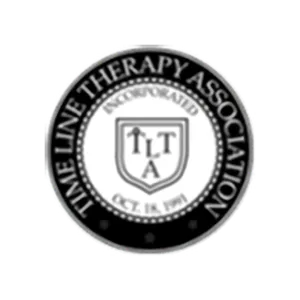Looking for a chance of pace? Want to explore a new career path but unsure how to begin? This guide will tell you everything you need to know about what is hypnotherapy, how it works, and what you need to get started!
การสะกดจิตคืออะไร?
Hypnotherapy is a method of treatment that uses guided relaxation and hypnotic suggestions to help clients work through painful feelings, thoughts, or memories in a safe environment. Being in a trance-like state allows patients to access parts of themselves they would normally deny.
Hypnosis can help treat patients struggling with phobias, anxiety, sleep disorders, PTSD, depression, stress, and grief. Therapists can also use hypnosis as a method of habit transformation, in cases like smoking or overeating.
This corrective treatment can be used by a wide range of professionals including medical professionals, therapists, clinicians, psychiatrists, and life and business coaches.
How Does Hypnosis Work?
There are two parts to the hypnosis process you need to understand in order to learn what is hypnotherapy. The first is guided relaxation which is used to ease the patient into a calm and suggestible state. You can use techniques like measured breathing, visualization, handshakes, or eye contact to induce a trance-like state.
In this initial step, your only objective is to make your client feel safe and secure in their environment. Talking to them can help establish a comfortable rapport as you develop your therapist-client relationship.
The second part of the process is treatment focused and may include a suggestive or analytic approach. Hypnotic triggers like the clapping of hands, jingling of a bell, or snapping of fingers will immediately break the trance and bring the patient back into the safety of your office.
What Are the Benefits of Hypnosis?
While hypnosis can include treatments like analysis, visualization, or suggestions, all of these methods allow the therapist to:
- change a client’s behavior patterns like smoking, overeating, or nail-biting
- alter a patient’s pain perception
- work through trauma and phobias in a controlled setting
- learn cognitive-behavioral coping skills
What Are the Drawbacks of Hypnosis?
Like all therapeutic treatments, there are some drawbacks to hypnosis. For example, hypnotherapy is:
- a risky option for people struggling with mental illness
- potentially dangerous at the hands of an untrained professional
Is Hypnosis Dangerous?
In certain cases, when patients are accessing traumatic memories that the brain has repressed, hypnosis can cause side effects like anxiety, headaches, lightheadedness, and lethargy. The risks are minimal as long as the hypnotherapist is an experienced, trained professional who knows what they’re doing.
That said, hypnosis can be dangerous for patients who suffer from certain types of mental illnesses like hallucinations, schizophrenia, delusions, and drug or alcohol addiction. In these cases, hypnotherapy can cause confusion about what is and isn’t real, through the creation of fake memories.
What Happens In a Hypnotherapy Session?
Hypnotherapy sessions may differ depending on the relationship between the therapist and client, as well as, the problems the patient is attempting to address. Generally, the sessions will start with some light conversion and relaxation techniques, followed by a gradual easing into more difficult topics.
When you reach a mental block it is the therapist’s prerogative to use suggestions or analysis to address the issue. Over the course of several sessions, hypnosis can help patients develop coping skills and work through deeper traumas.
What Kinds of Issues Do Hypnotherapists Commonly Treat?
While the specifics will vary from patient to patient there are some common issues hypnotherapists can treat. These include anxiety, phobias, professional issues, substance abuse problems, and bad habits like smoking or nail biting. Hypnosis works for issues of all intensities from mild to serious.
Anxiety
One of the most common mental illnesses in the US, clinical anxiety has multiple treatments including cognitive behavioral therapy, exposure therapy, medication, and even hypnotherapy. The relaxation and high level of focus induced during hypnosis can help ease patients’ anxiety, and allow them to unearth the root cause of their anxiety in a controlled environment.
Phobias
The objective of hypnotherapy is to connect with a patient’s subconscious thoughts while they are in an open and suggestible state. This allows them to delay their body’s immediate reaction to fear, and instead address the source of their fear under supervision. The therapist can talk the patient through the fear-inducing scenario and help them view it in a different light.
Professional Issues
Often professionals struggling with decision-making or procrastination may seek hypnotherapy to help address these key personality traits that are formed over many years. Therapists can help these clients build confidence and resilience through reinforcement over several sessions.
Substance Abuse Problems
Hypnotherapy has shown great results as a treatment for substance abuse, including drugs and alcohol. EEG readings of the brain show how hypnotic suggestions influence the minds of patients and change long-term behavioral patterns. When you strengthen an addict’s resolve and willpower through hypnosis they are better able to overcome their cravings and urges.
Bad Habits
The heightened suggestibility of the brain in a hypnotic state allows patients to break or reform bad habits. While the strategy is the same as that used to treat substance abuse, hypnotherapists can also target habits like overeating, nail-biting, smoking, bed wetting, or insomnia.
What Kind Of Training Do Hypnotherapists Have?
Hypnotherapists have to go through dozens of hours of workshops to teach them what is hypnotherapy, as well as, one-on-one training with a licensed professional before they can get certified. This training includes techniques for helping patients relax, inducing a trance-like state, and various hypnotic treatments like suggestion and analysis.
Overall, the field of hypnosis is not regulated so anyone who’s completed a cheap online course can call themselves a hypnotherapist. That’s why it’s important to look for legitimate courses that are certified by the American Board of Hypnotherapy.
These accredited programs add value to your resume and ensure that you’re getting the right kind of comprehensive instruction.
Who Can Become a Hypnotherapist?
For professionals in the health care industry like psychiatrists, clinicians, and cognitive-behavioral therapists, training in hypnosis adds a valuable skill to their resume. Other professionals like life and business coaches can also benefit from training in hypnotherapy since it gives them more tools to help their clients achieve their goals.
It’s important to remember that there are no prerequisites for hypnotherapy certification so technically anyone can become a hypnotherapist. If you have the soft skills to listen patiently, understand the root of a client’s problems, and gently push them in the right direction you can become a hypnotherapist.
Get Started On Your Journey To Becoming a Certified Hypnotherapist
If you feel like you have the skills and determination to become a hypnotherapist the easiest way to get started is by signing up for NLP Top Coach’s 2-in-1 certification course. The expert coaches will start you off with the basics of hypnotherapy theory, and then teach you practical tools and techniques to help patients change their behavioral patterns.
The course gives trainees the opportunity to witness practical demonstrations by hypnosis experts and then follow them up with hands-on practice under observation. With this hands-on approach, you’ll learn the tricks of the trade in no time.
Once you have your certification at the end of the course you can begin collaborating with experienced hypnotherapists and start looking for clients.








